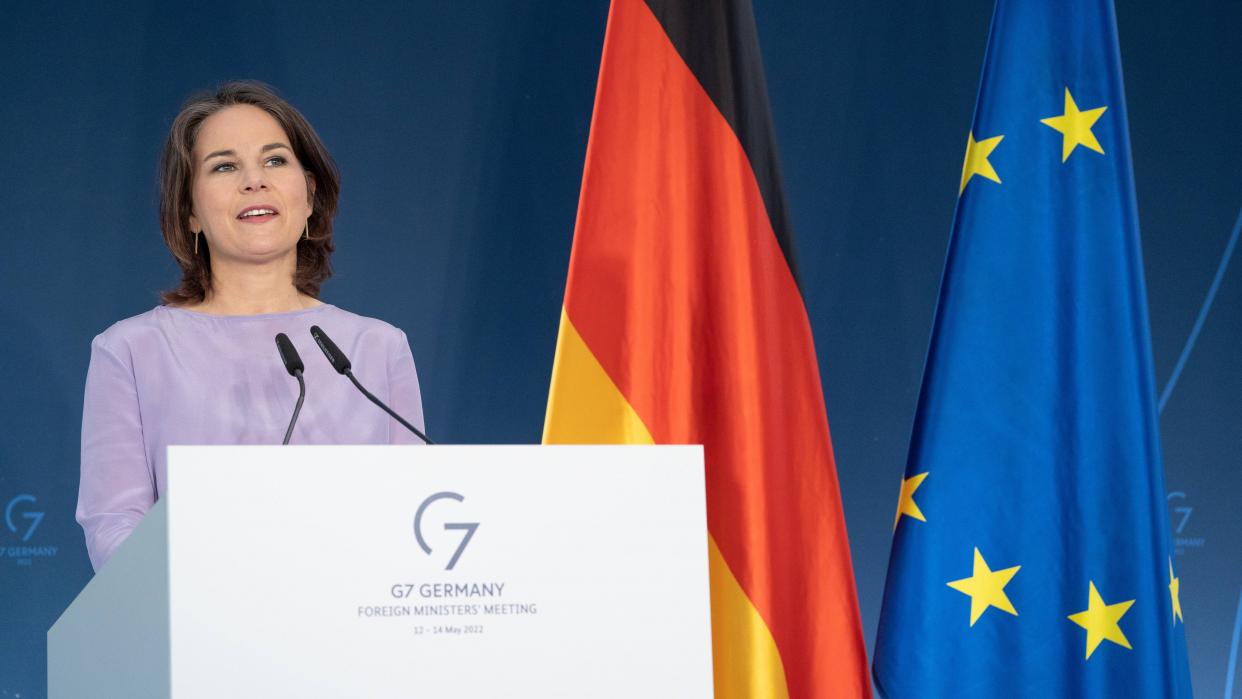In November last year, Germany signed a 15-year LNG agreement with Qatar.
The region’s normalisation with Syria’s Bashar Al Assad regime will be on the agenda of an upcoming meeting between between Qatar and Germany’s foreign ministers, Berlin’s foreign ministry announced.
German Foreign Minister Annalena Baerbock will visit Saudi Arabia before then heading to Qatar between Monday and Tuesday, the German foreign ministry said.
In Qatar, Baerbock will meet Qatar’s Prime Minister and Foreign Minister Sheikh Mohammed bin Abdulrahman Al-Thani to discuss bilateral relations and the latest wave of normalisation with Syria.
“Another topic on the agenda is the normalisation of relations with Syria, which Arab countries are striving for and which, in Germany’s view, must be made contingent upon clear conditions in light of ongoing repressive measures under Assad’s regime,” the German foreign ministry said.
Last week, the Arab League readmitted Syria into the 22-member bloc more than a decade since stripping Damascus of its membership. The major political shift came just weeks ahead of the this year’s Arab League summit, scheduled to take place in Saudi Arabia on 19 May.
On Wednesday, Saudi Arabia invited Syria to attend the high-level meeting, 12 years after severing ties with Assad in 2011 in response to a brutal crackdown on pro-democracy protesters.
Despite countries in the region rekindling ties in recent years, Qatar has maintained its position in refusing to normalise with Assad.
The German official further noted that “the Gulf region is a geopolitical hub between Asia, Africa and Europe and its influence extends far beyond the Arabian Peninsula.”
“In the ongoing crises in the region, too, the voices of Saudi Arabia and Qatar carry enormous weight. Following the outbreak of fighting in Sudan, many people found their way to safety by crossing the Red Sea to Jeddah – just as many initially found refuge in Doha following evacuation from Afghanistan,” Baerbock said.
Bilateral relations
The German official is also expected to discuss bilateral ties between Doha and Berlin, with energy and labour high on the agenda.
Baerbock also pointed to the region’s oil and gas industry being a driving force for the global economy as well as Berlin’s prosperity.
The German foreign ministry added that Baerbock will hold a “dependable dialogue with partners in the Gulf”, which it said “is essential for Germany and Europe.”
In the wake of Russia’s war on Ukraine, Germany was among a number of European countries that sought alternatives to Russian liquified natural gas (LNG). As a regional gas giant, European countries turned to Qatar in hopes of securing their supply.
In November last year, Germany signed a 15-year LNG agreement with Qatar, with flows expected to kick start in 2026. Hungary, which is among a list of countries that rely heavily on Russian oil and gas, later announced that talks would take place with Qatar over LNG supply.
Additionally, Baerbock will engage in talks with representatives of the International Labour Organization on workers’ rights in Qatar, which Berlin said is an issue that “had come into focus especially in light of the FIFA World Cup.”
Much of the criticism last year, driven by western media outlets, was centred on Qatar’s alleged abuse of migrant workers and its stance on the LGBTQ+ community. Notably, Qatar was the first Arab and Muslim country to host the World Cup.
Late last year, Germany’s Interior Minister Nancy Faesar triggered a spat between Berlin and Doha after criticising the Gulf state’s human rights record.
While Faesar quickly backtracked on her comments following meetings with labour officials in Doha, she drew attention during the World Cup by wearing the LGBTQ+ “one love” armband to protest FIFA’s decision to ban it on the pitch.
Commenting on her decision to show up with the armband, Faesar said that it was “important” for her to take a stance, adding that she got the armband from the German Federation.
The tiny Gulf state was able to step up to criticism by hosting what has been widely dubbed as “best” and the “safest” version of the World Cup.







